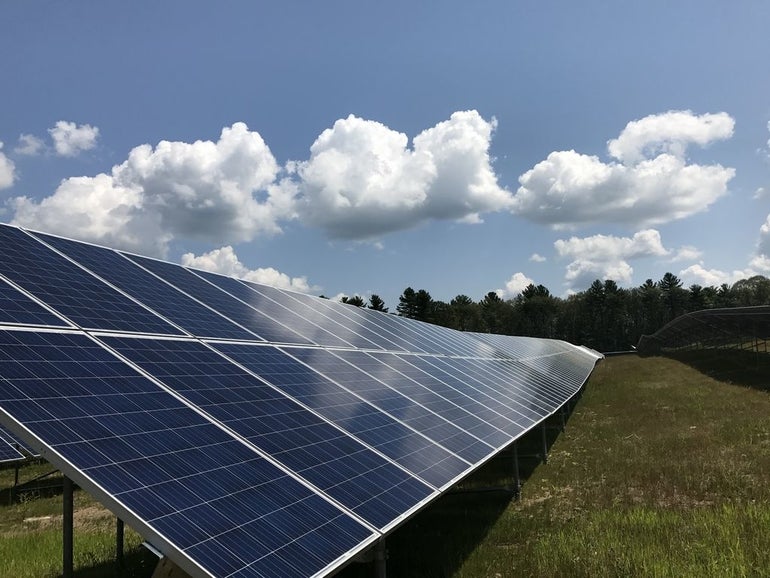After nine years at the top of a list that state officials regularly tout, Massachusetts is no longer considered to be the most energy-efficient state in the nation.
California now sits atop the American Council for an Energy-Efficient Economy (ACEEE) rankings and bumped Massachusetts down to second place thanks to the passage of millions of dollars in incentives for high-efficiency heat pump water heaters and an executive order to phase out new gasoline-powered vehicles by 2035.
“In a year dramatically impacted by a global pandemic and associated recession, efforts to advance clean energy goals struggled to maintain momentum amid the loss of 400,000 energy efficiency jobs by the summer and disruptions to countless lives. Despite these challenges, some states continued to successfully prioritize energy efficiency as an important resource to help reduce household and business energy bills, create jobs, and reduce emissions,” the ACEEE wrote in its annual report and scorecard. “First place goes to California, which sets the pace in saving energy on multiple fronts with adoption of net-zero energy building codes, stringent vehicle emissions standards, and industry-leading appliance standards.”
Massachusetts has had at least a share of first place in the ACEEE rankings for the last nine years (California had tied with Massachusetts for number one as recently as 2016) and has been in the top 10 all 14 years that the ACEEE has published its annual state scorecard.
“Generally speaking, the highest-ranking states have all made broad, long-term commitments to energy efficiency, indicated by their staying power at the top of the State Scorecard over the past decade,” lead report author Weston Berg said. “However, it is important to note that retaining one’s spot in the lead pack is no easy task; all of these states must embrace new, cutting-edge strategies and programs to remain at the top.”
Every year since 2015, the Baker administration has celebrated the top billing with a press release, featuring quotes from the governor, lieutenant governor, Energy and Environmental Affairs secretary, Department of Energy Resources commissioners, House speaker, Senate president, House minority leader, Senate minority leader and a House committee chairman.
This year, there was no administration press release, and the Executive Office of Energy and Environmental Affairs and Department of Energy Resources declined to make anyone available to discuss the rankings with the News Service on Wednesday.
“The Baker-Polito Administration is proud to be recognized for Massachusetts’ national leadership on energy efficiency, delivering over $14 billion in benefits to ratepayers across the Commonwealth since 2015, procuring historic amounts of hydropower and offshore wind, and setting an aggressive commitment to achieve Net Zero Emissions by 2050,” Eric Noreen, a spokesman for DOER, said in a statement. “The Commonwealth is committed to building on its success as the most energy efficient state in the Northeast.”
The rankings are based on six categories of energy efficiency policy and programs, including utility programs, transportation, building energy codes, combined heat and power, state government policies, and appliance standards.
California earned a score of 43 out of a possible 50 points, with Massachusetts close on its heels at 42.5 points out of 50. California matched or exceeded Massachusetts’ scores in all but the utility programs category, which accounts for 40 percent of a state’s overall score.
In previous years, the Baker administration has said that the utility-run MassSave energy efficiency programs are “key to Massachusetts’ ongoing leadership.” In 2019, the fact that Massachusetts scored a perfect 20 points in that category was key to keeping California at an arm’s length in the rankings as the West Coast state matched or out-performed Massachusetts in every other category.
Sen. Michael Barrett, the Senate chair of the Committee on Telecommunications, Utilities and Energy, had previously said that the state’s number one ranking thanks to the utility programs category “obscures our shortcomings in reducing emissions elsewhere, especially in transportation.”
Barrett said Wednesday that the latest ACEEE report and the Bay State’s fall from the top spot should be “a wake-up call” for the administration and Legislature to strengthen efforts that fall under the other ACEEE categories, particularly those dealing with transportation emissions and the built environment.
He said the administration has proposed a state-level appliance efficiency law like the one California has. If adopted, Massachusetts could pick up three points in the ACEE scorecard and, absent significant additional action by other states, retake the top spot for the 2021 rankings.
Barrett said he would be happy to consider appliance efficiency if the administration agrees to a few changes to the three-year energy efficiency plans put together by administrators of the Mass Save program, the most recent of which was approved last year.
Specifically, he wants to see the administration set emissions reduction goals at the outset of each three-year plan, have the Department of Public Utilities assess whether those goals were met by the end of the three-year plan, and to require that MassSave initiatives be evaluated using metrics that deal directly with emissions reduction.
“This is an opportunity to re-evaluate and reset the program with an explicit emphasis on reducing greenhouse gasses,” Barrett said. He noted that the suite of climate legislation the Senate passed this year, but not yet finalized through negotiations with the House, included those requirements.
Massachusetts has been working to reduce greenhouse gas emissions for years, but the effort is accelerating and taking on increased importance as the effects of global climate change threaten property, the economy and public health.
In January, Gov. Charlie Baker announced he would accelerate the state’s decarbonization efforts. The 12-year-old Global Warming Solutions Act required an 80 percent reduction below 1990 levels by 2050, but the new limit announced by the administration in April essentially puts the state on the path towards net-zero greenhouse gas emissions by 2050.
Though it has not yet been codified in law, both branches of the Legislature have registered their support for the net-zero by 2050 goal.

